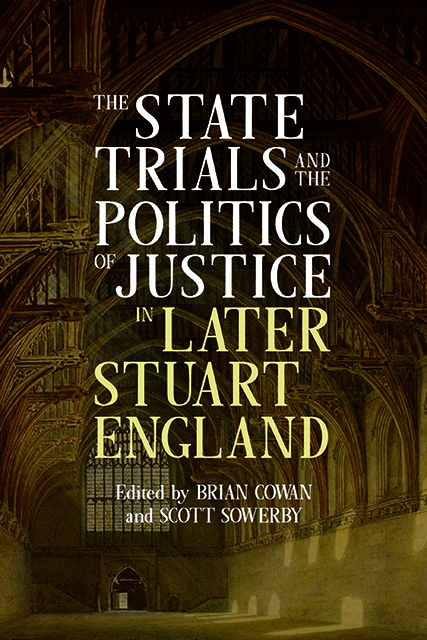6 - Constructing Conspiracy: Reporting the Rye House Plot Trials
Published online by Cambridge University Press: 14 January 2023
Summary
In 1683 and 1684, contemporaries learned details of the Rye House Plot from dozens of printed pamphlets reporting the arrests, the trials and the executions of the plotters. Whig conspirators had floated and from about Midsummer 1682 even begun planning for several radical options to force the recall of parliament and to limit Catholic (and even Tory) access to the Crown: some planned a mass uprising, some the seizure of the Tower of London and thus the metropolis, and some the kidnapping of King Charles II and his royal brother, James duke of York. Of these different conspiracies, only one involved the plan to kill the royal brothers on the road back from Newmarket to London as it passes Rye House in Hertfordshire, and only some of the conspirators were privy to it. That plan was thwarted by a fire at Newmarket in March 1683, which forced the king’s early return to Whitehall. Alternative plans continued until June, when all collapsed after one plotter revealed what he knew to royal authorities. Virtually all the various schemes bruited by the Rye House plotters in 1682 and 1683 – seizing the king, killing the king or arming to seize control of the metropolis – would qualify as treasonous. Proclamations were issued for the arrest of named conspirators. Some fled, while others were arrested. The first Plot trials began on 12 July. Historians have followed contemporaries in considering all the various plans as a single conspiracy. The trials of the various conspirators can be considered collectively as the Rye House Plot trials. These trials had an eventual impact on trial procedure in cases of treason and then on all criminal trials. They had an immediate impact on political discourse.
The trials constructed the Plot, providing a focus and a single narrative with a beginning and an end to otherwise disparate ideas and actions against the government. Contextualizing the Plot trial reports and their influence helps to excavate late seventeenth-century news culture as well as the reach of treason trials.
The political impact of the Rye House Plot trials depended both on when the public learned about the trials, as well as the substance of what they learned.
- Type
- Chapter
- Information
- Publisher: Boydell & BrewerPrint publication year: 2021



